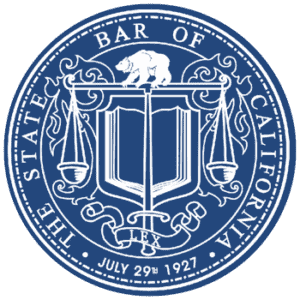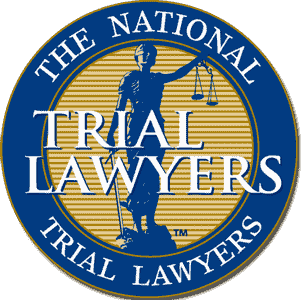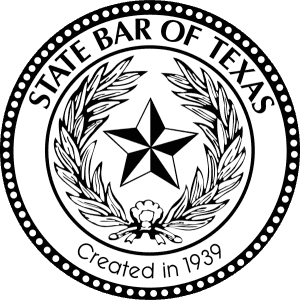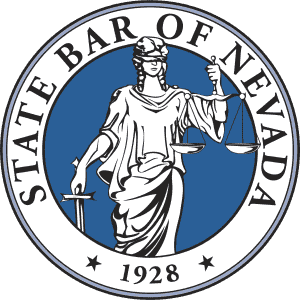CORPORAL PUNISHMENT IN NEVADA, YES REALLY
Estimated Reading Time: 7.7minutes
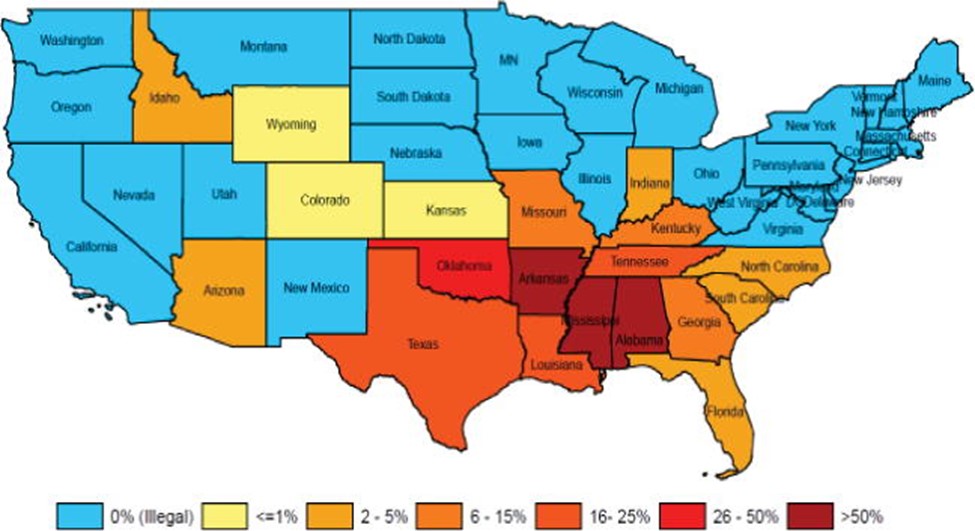
States Where Corporal Punishment is Legal and Percentage of Schools that report Using Corporal Punishment
https://www.ncbi.nlm.nih.gov/pmc/articles/PMC5766273/
FIVE FACTS TO UNDERSTAND ABOUT CORPORAL PUNISHMENT IN NEVADA
- Corporal punishment in Nevada Public Schools was legal until 1993;
- Corporal punishment by parents is legal in Nevada;
- Growing up in Nevada teachers used to have paddles at their desk;
- Corporal punishment should never inflict substantial bodily harm on a child Restraint should be use by parents using corporal punishment;
- Corporal punishment is currently legal in Nevada Private Schools ;
The United States is one of only two industrialized nations that currently allow corporal punishment in schools in some states. Although it has not been legal in Nevada since 1993, public schools in 19 states and in private schools in 48 states still allow corporal punishment. According to reports, over 160,000 children, from preschool through 12th grade, were subjected to corporal punishment in public schools in the 2013-2014 school year, according to the U.S. Department of Education. It is more common in some states with 85 percent of school districts in Alabama, Arkansas and Mississippi reporting that they used corporal punishment that year. Corporal punishment remains legal in the United States because of a Supreme Court decision that is over 40 years old. In 1977, the Supreme Court ruled in Ingraham v. Wright that corporal punishment in public schools was constitutional, which meant that each state could make its own rules when physically disciplining students. No other case regarding corporal punishment in schools has made it to the Supreme Court since then. The practice remains legal in nineteen states shown on the map above.
https://news.utexas.edu/2016/10/05/disproportionate-use-of-corporal-punishment-in-schools/
What is Corporal Punishment in Nevada?
Corporal punishment is defined by the Nevada Revised Statutes at NRS 433.546 as follows:
Corporal punishment” means the intentional infliction of physical pain, including, without limitation, hitting, pinching or striking. (Added to NRS by 1999, 3230)
Growing up in Nevada, corporal punishment in schools was accepted. In fact, when I was a kid in the eighties, some teachers and the principal had paddles to be used on students hanging in plain sight for students to see. Some teachers even had paddles with holes drilled in them for a little added velocity. In 1960, the statute (which was in effect until 1993) read as follows:
Section 1. Chapter 392 of NRS is hereby amended by adding thereto a new section which shall read as follows:
1. The legislature declares:
(a) That the use of corporal punishment is to be discouraged in the public schools, and only after all other methods of discipline have proven ineffective should a pupil be administered corporal punishment.
(b) That judgment and discretion are to be used in all punishment, corporal and otherwise, and maximum use should be made of available school counseling and psychological services.
2. Subject to the limitations contained in this section, the board of trustees of every school district shall adopt rules and regulations authorizing teachers, principals and other certificated personnel to administer reasonable corporal or other punishment to pupils when such action is deemed an appropriate corrective measure.
3. Parents and guardians shall be notified before, or as soon as possible after, corporal punishment is administered.
4. No corporal punishment shall be administered on or about the head or face of any pupil, but this limitation shall not prohibit any teacher, principal or other certificated person from defending himself if attacked by a pupil.
5. Nothing contained in this section shall be construed or interpreted to indicate that the teachers, principals and other certificated personnel have not heretofore had the authority and the right to administer reasonable corporal or other punishment to pupils.
https://www.leg.state.nv.us/Statutes/50th1960/Stats196001.html#Stats196001page60
This statute remained in effect with minor alterations allowing corporal punishment in public schools until 1993 when it was amended as follows:
NRS 392.4633 is hereby amended to read as follows:
392.4633 1. Corporal punishment [may] must not be administered upon a pupil in any public school.
2. Subsection 1 does not prohibit any teacher, principal or other licensed person from defending himself if attacked by a pupil.
3. A person may report the use of corporal punishment on a pupil to the agency which provides child welfare services in the county in which the school district is located. If the agency determines that the complaint is substantiated, the agency shall forward the complaint to the Department, the appropriate local law enforcement agency within the county and the district attorney’s office within the county for further investigation.
4. As used in this section [, “corporal punishment”] :
(a) “Agency which provides child welfare services” has the meaning ascribed to it in NRS 432B.030.
(b) “Corporal punishment” means the intentional infliction of physical pain upon or the physical restraint of a pupil for disciplinary purposes. The term does not include the use of reasonable and necessary force:
[(a)] (1) To quell a disturbance that threatens physical injury to any person or the destruction of property;
[(b)] (2) To obtain possession of a weapon or other dangerous object within a pupil’s control;
[(c)] (3) For the purpose of self-defense or the defense of another person; or
[(d)] (4) To escort a disruptive pupil who refuses to go voluntarily with the proper authorities.
https://www.leg.state.nv.us/Statutes/75th1993/Stats199310.html#Stats199310page921
MODERN USE OF CORPORAL PUNISHMENT
However, parents have the right to discipline their children as long as it is reasonable and does not rise to the level of child abuse by inflicting substantial bodily harm. Corporal punishment in Nevada is defined as a form of child discipline that involves physical pain. This is traditionally considered to be spanking or hitting a child using certain objects meant to sting or cause temporary pain. In Nevada, although this type of punishment was legal in public schools while I was growing up, it became illegal in schools in 1993. Many are shocked that corporal punishment was legal in Nevada schools, although not really used at that point, until 1993.
Although corporal punishment was outlawed in schools in Nevada in 1993, it is legal to use in the home. NRS 392.4633 states that that “no corporal punishment shall be imposed in a pupil in any school. “ Therefore, this law applies to discipline in the schools but not in the home. Although in this modern age, it is sad but necessary to distinguish that physical attacked is not classified as corporal punishment if physical force or infliction of pain was used to obtain a deadly weapon from a student, stop a student from harming another person, or for self-defense.
Difference between corporal punishment and child abuse in Nevada
Parents are permitted to discipline their children by spanking as long as you don’t cause injury to the child. Corporal punishment is justified discipline for unacceptable behavior. Child abuse is inflicting significant bodily injury upon a child. It is important to be cautious and restrained in using corporal punishment sparingly without great force.
At the Law Offices of Laura Payne-Hunt, TheOneLawyer, we provide professional and personal service to each and every one of our clients on various legal matters. Although we handle personal injury matters, with 20 years’ experience, we can refer you to specialists in most fields of law that we have personal knowledge regarding their ability. If you have a question regarding any type of personal injury or paying your medical bills from an accident, please don’t hesitate to call the offices of TheOneLawyer.com and speak directly to attorney Laura Marie Payne-Hunt, Esq. a Henderson Injury Attorney for over 15 years. Laura is recognized as one of Nevada’s Top 100 Lawyers. She has the experience and knowledge to obtain the maximum settlement you deserve. Please call our office if you or a loved one is injured. We can make sure that you receive the care you need and deserve and advise on how to preserve evidence.
At our office, we are experienced in helping injured victims get the compensation they are entitled to. Insurance companies never have the best interest of the injured person at the top of their priorities. They want to pay as little on every claim as possible. Having worked for an insurance company as an attorney for 9 years before opening my boutique law firm specializing in helping injured people, I have reviewed thousands of auto accident claims and policy provisions.
At the Henderson and Las Vegas Accident injury law offices of TheOneLaweyer.com, Laura Marie Payne-Hunt and her staff are here to help you and your family in the event that accidents and tragedies occur. For any of your legal needs, do not hesitate to contact our Henderson and Las Vegas Accident injury offices. TheOneLawyer.com is a boutique, family owned law firm that specializes in helping injured people and the community of Las Vegas and Henderson Nevada with legal issues involving auto accidents, wrongful deaths, slip and falls, truck accidents, injuries to children, bicycle accidents, dog bites, product liability claims, and all types of injury claims. Please do not hesitate to call us anytime you have a legal question or you or a loved one has sustained an injury at 702-450-(HUNT) 4868 and text 24/7 at 702-600-0032.


